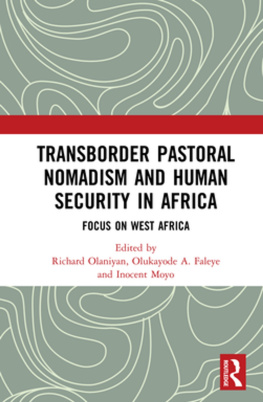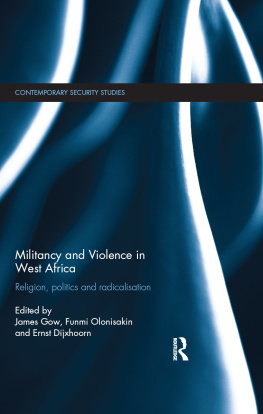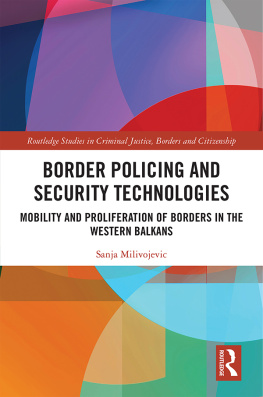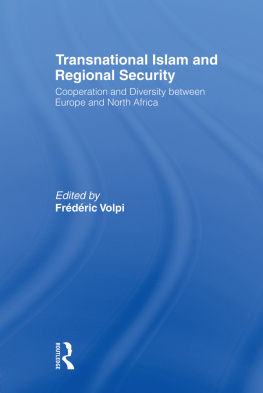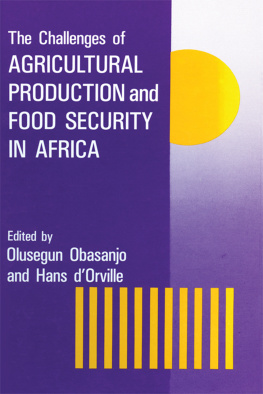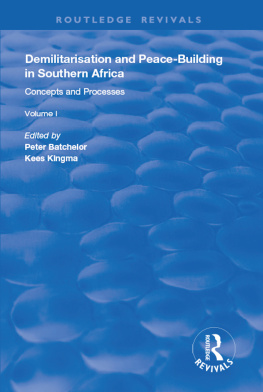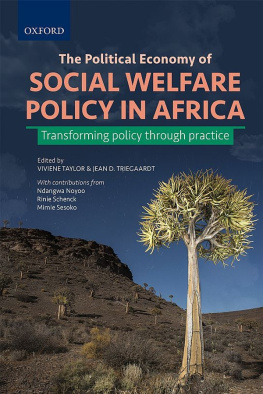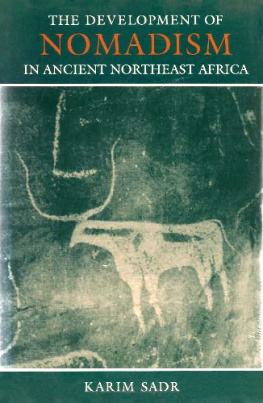Transborder Pastoral Nomadism and Human Security in Africa
This book examines the nexus between political borders, pastoral nomadism, and human security in Africa. It uses a host of applied interdisciplinary insights to analyse social, political, and cultural processes;, circumstances;, and consequences to showcase the human security crisis in the context of climate change, inter-group relations, leadership strategies, institutions, and governance within the region.
With a special focus on West Africa and Nigeria, the volume discusses crucial themes that highlight the role of borders in the security architecture of the region which include,:
- Political economy of herdsmen-farmers conflicts in West Africa;
- The scarcity-migration perspective of the Sahel region;
- Population pressure, urbanization, and nomadic pastoral violence in West Africa;
- Human trafficking and kidnapping for ransom in Nigeria;
- Drivers of labour migration of Fulani herders to Ghana, and other topics.
A key contribution to a pressing issue, this volume will be of interest to scholars and students of history, political science, anthropology, geography, international relations, literature, environmental science, and peace and conflict studies.
Richard Olaniyan was for many years a Professor of History and International Relations at Obafemi Awolowo University, Ile-Ife, Nigeria, where he served as Dean of Arts. He is a Fellow of the Nigerian Academy of Letters (FNAL).
Olukayode A. Faleye is Senior Lecturer in History and International Studies at Edo State University, Uzairue, Nigeria.
Inocent Moyo is Senior Lecturer in Human Geography and Environmental Studies at the University of Zululand, South Africa.
Transborder Pastoral Nomadism and Human Security in Africa
Focus on West Africa
Edited by Richard Olaniyan, Olukayode A. Faleye, and Inocent Moyo
First published 2022
by Routledge
2 Park Square, Milton Park, Abingdon, Oxon OX14 4RN
and by Routledge
605 Third Avenue, New York, NY 10158
Routledge is an imprint of the Taylor & Francis Group, an informa business
2022 selection and editorial matter, Richard Olaniyan, Olukayode A. Faleye and Inocent Moyo; individual chapters, the contributors
The right of Richard Olaniyan, Olukayode A. Faleye and Inocent Moyo to be identified as the authors of the editorial material, and of the authors for their individual chapters, has been asserted in accordance with sections 77 and 78 of the Copyright, Designs and Patents Act 1988.
All rights reserved. No part of this book may be reprinted or reproduced or utilised in any form or by any electronic, mechanical, or other means, now known or hereafter invented, including photocopying and recording, or in any information storage or retrieval system, without permission in writing from the publishers.
Trademark notice: Product or corporate names may be trademarks or registered trademarks, and are used only for identification and explanation without intent to infringe.
British Library Cataloguing-in-Publication Data
A catalogue record for this book is available from the British Library
Library of Congress Cataloging-in-Publication Data
A catalog record has been requested for this book
ISBN: 978-1-032-01314-5 (hbk)
ISBN: 978-1-032-13842-8 (pbk)
ISBN: 978-1-003-23104-2 (ebk)
DOI: 10.4324/9781003231042
Typeset in Sabon
by Deanta Global Publishing Services, Chennai, India
Contents
Richard Olaniyan, Olukayode A. Faleye, and Inocent Moyo
PART I
Regional perspectives
Opeyemi I. Aluko
Emmanuel T. Akov and Samuel Asua
Afamefuna S. Ogbette
Part II
Focus on Nigeria
Solomon Awuzie
Kwaghga Beetseh and Markyaah Nongo
Dawood O. Egbefo and Sunday F. Babalola
Part III
Insights from Ghana
Kaderi Noagah Bukari and Patrick Osei-Kufuor
Contributors
Opeyemi I. Aluko is a Lecturer in Political Science at Ajayi Crowther University, Oyo, Nigeria.
Emmanuel T. Akov is a Lecturer in Political Science and Public Administration at the University of Uyo, Nigeria.
Samuel Asua is a Lecturer in Political Science and Public Administration at the University of Uyo, Nigeria.
Solomon Awuzie is a Senior Lecturer in the Department of English Studies at Edo State University, Uzairue, Nigeria.
Sunday F. Babalola is Associate Professor in Religion and Philosophy at Joseph Ayo Babalola University, Uzairue, Nigeria.
Kwaghga Beetseh is a Lecturer in Library Administration at the Federal University of Agriculture, Makurdi, Nigeria.
Kaderi Noagah Bukari is a research fellow in the Department of Peace Studies, School for Development Studies, University of Cape Coast, Ghana.
Dawood O. Egbefo is Professor of Ethnic and Intergroup Relations in the Department of History and International Studies, Edo State University, Uzairue, Nigeria.
Patrick Osei-Kufuor is a senior research fellow in the Department of Peace Studies, School for Development Studies, University of Cape Coast, Ghana.
Afamefuna S. Ogbette is a PhD student in Public Administration and Local Government at the University of Nigeria, Nsukka, Nigeria.
Markyaah Nongo is a Lecturer in Public Administration at Benue State Polytechnic, Nigeria.
1 Introduction
Richard Olaniyan, Olukayode A. Faleye, and Inocent Moyo
DOI: 10.4324/9781003231042-1
This book examines the nexus between borders, nomadic pastoralism, and human security in Africa, with a particular focus on West Africa. Borders are both material and symbolic, which means that they can have a very obvious presence and even where visually indistinct, they are typically the bearers of a wider symbolism (Anderson and ODowd, 1999, p. 595). As a result, borders illustrate a place of friction or meeting where alterity is negotiated [ they] are a kind of space where the relationship with otherness can be developed in such a way as to allow for identity-building and place-making (Szary, 2015, p. 36). From this point of view, borders are not only physical lines at the margins of nation-states but also social, cultural, and other processes which play out at different scales and spaces (Asiwaju, 1984a, 1984b; Coleman, 2007; Paasi, 2012; Cons and Sanyal, 2013; Laine, 2015; Szary, 2015; Faleye, 2016; Moyo and Nshimbi, 2019). As observed by Gregor Dobler:
[I]n the international system of sovereign states be they colonial or post-colonial borders make the radical claim to mark the line where one states authority begins and another ones ends. On one side of that line, the claim for the monopoly on the legitimate use of violence lies with one government in one capital; a few steps further, the claim lies with a different government in a different capital.
(Dobler, 2016, p. 147)
In Sub-Saharan Africa, this has translated to a phenomenon where people of a mobile culture such as herdsmen commit a crime in one country or culture area and use the border to evade the law enforcement agents. Indeed, once they cross the border, they easily disappear into another country or assimilate into a different cultural space. The effect of the border in terms of marking the interiority and exteriority of countries (Moyo, 2016) is that it can shelter illegal or unlawful cross-border activities like cattle rustling and transnational bandits by providing refuge to perpetrators of these cross-border crimes (Kynoch and Ulicki, 2001). This has created a cross-border security challenge for both the state and the border communities a fact which has been demonstrated across Africa (see Awogbade, Olaniyan and Faleye, 2016; Alemu, 2019; Aluede, 2019; Alusala, 2019; Faleye, 2019; Moyo and Nshimbi, 2019; Okolie-Osemene and Aluko, 2019).

